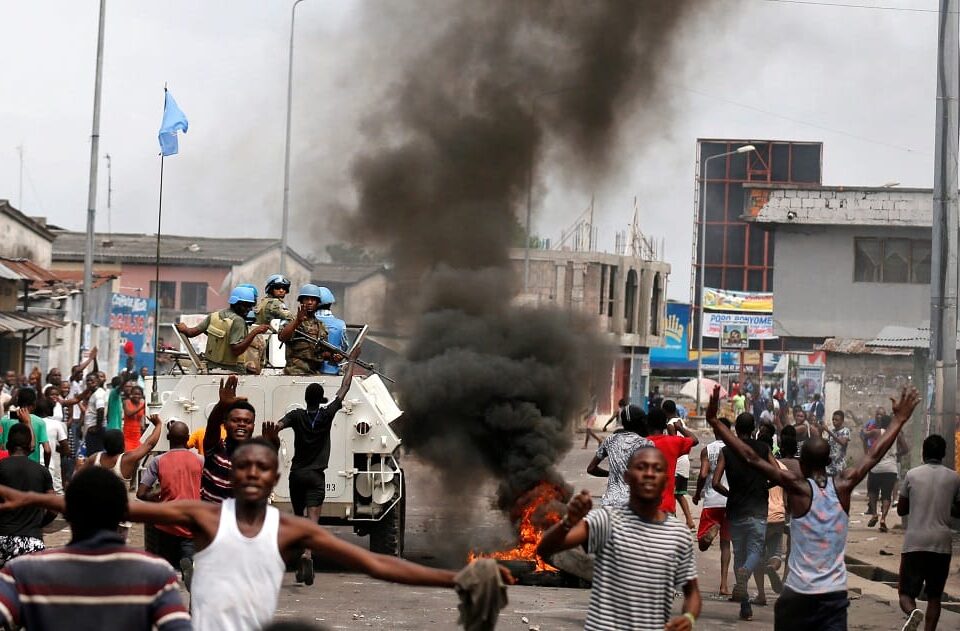
Parliamentarians urged to mainstream Statelessness on legislation reforms
November 10, 2019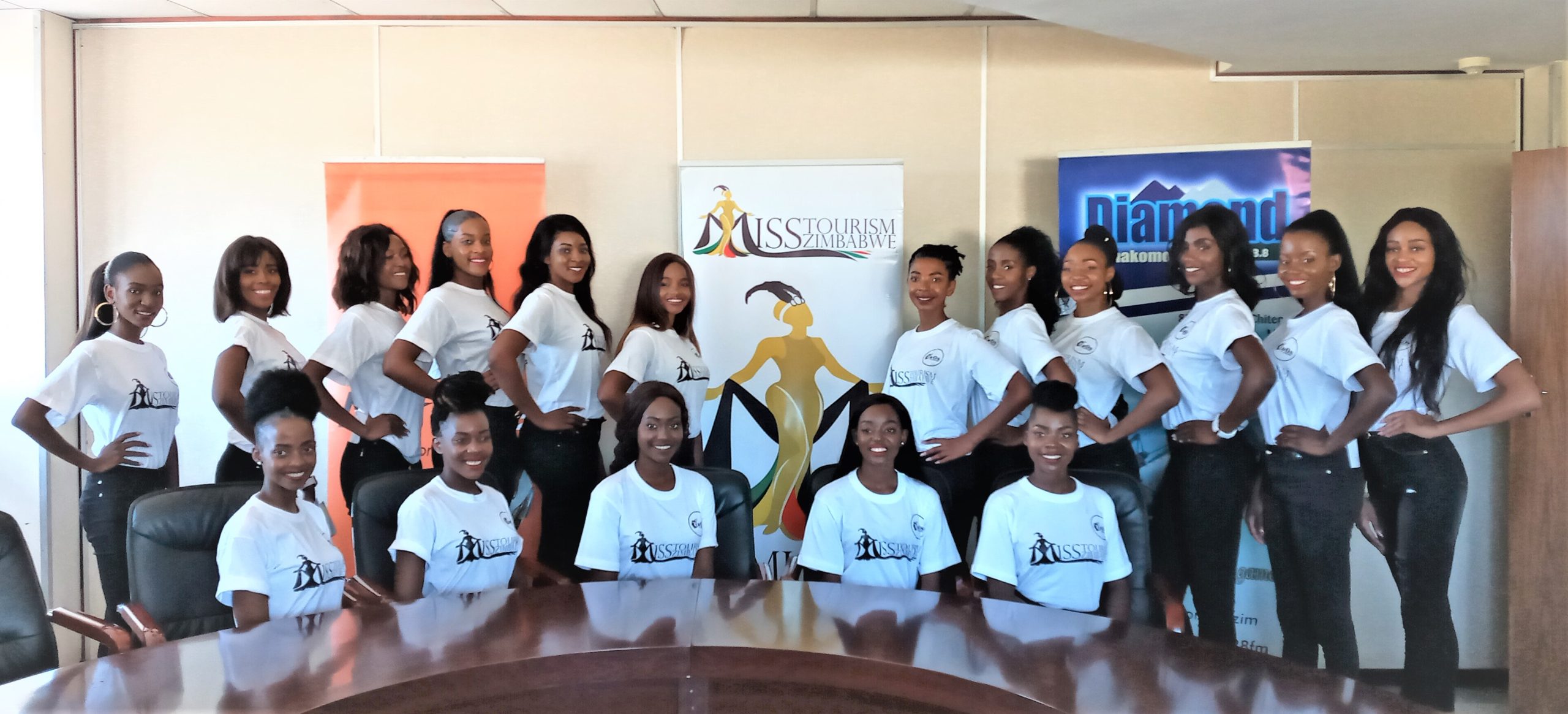
Historic Miss Tourism Zimbabwe on the cards in Nyanga
December 10, 2019Zimbabwe unmasks roadmap to deal with statelessness
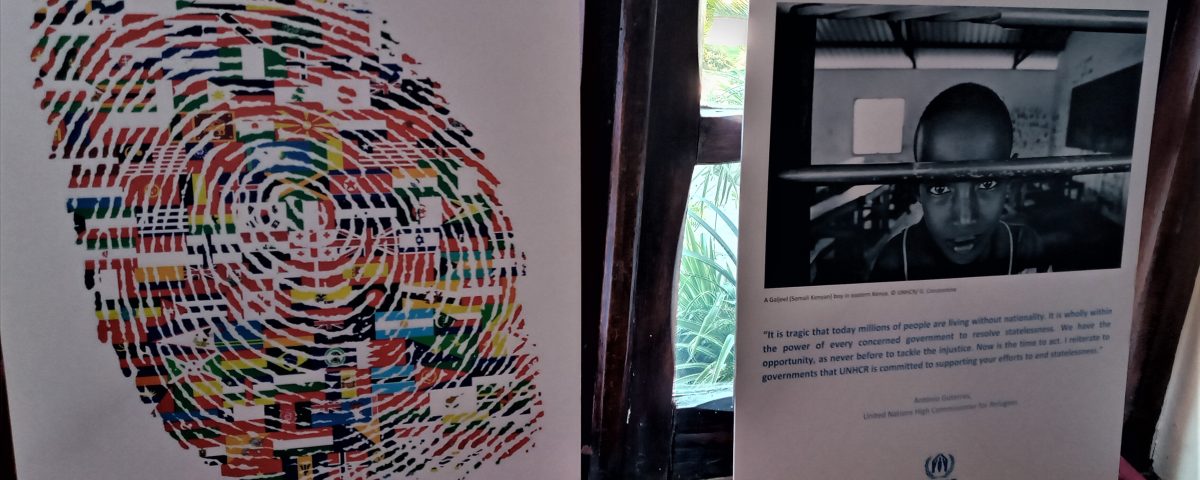
Zimbabwe last month signed a pledge to commit to the 1961 Convention on the Reduction of Statelessness. Statelessness is becoming a growing concern worldwide.
“We are proposing as Parliamentarians that the moratorium will run from 2020 January to 2021 January, a period of 12 months. There should be a joint committee of Justice, Legal and Parliamentary Affairs; the Home Affairs committee; Defense committee; the Labour and Social Welfare committee and the Human Rights committee, which is a thematic committee of the Senate, so that we expeditiously deal with this scourge, aware that the UNHCR is quite mandated to deal with statelessness by 2024, and this is quite plausible,” said Hon Nduna.
…Commits to 1961 Convention on the Reduction of Statelessness
Ngoni Dapira
IMAGINE waking up one day and realize you have no proof of your identity, from your birth certificate, national identity (ID) card, passport, professional certificates, bank cards and all other civic documents that prove your nationality and individuality. All of a sudden you have become an alien, an outcast to the laws of the State, simply because you cannot prove your identity by nationality documentation. Regardless of any professional qualification you may have had or have, attaining decent work becomes a problem with no professional certificates, and the next and only option left is to solicit for any odd jobs you can get, in some cases even illegal contracts, that put your life at risk, so long you make ends meet.
This is the everyday reality of between 10 to 12 million people worldwide who are not considered as nationals by a State under the operation of its law, and become what is known as stateless. This is a growing concern globally among failed asylum seekers, descendants of former migrant workers as well as citizens who are discouraged from going through the birth and national ID registration processes due to prohibitive civic documentation systems in their country, thereby going for years undocumented.
According to the United Nations High Commissioner for Refugees (UNHCR), without any nationality, stateless persons do not often get to enjoy the basic rights that other citizens enjoy, among them are the socio-economic rights such as education, employment, social welfare, housing, healthcare as well as civil and political rights such as freedom of movement, freedom from arbitrary detention and political participation.
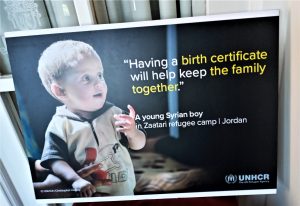
One of the pledges made by Zimbabwe last month was on simplifying and improving access to birth registration procedures, including issuance of birth certificates to descendants of former migrant workers and failed asylum seekers.
The UN Refugee agency, UNHCR, said Zimbabwe, like many countries worldwide, has not ratified the 1961 Convention on the Reduction of Statelessness, which outlines a series of additional standards in recognition of the need for the international cooperation and agreement to prevent and reduce statelessness. In 2010 while the 1961 Convention only had 37 States Parties, UNHCR said it noticed how a growing number of States were turning to the Convention for guidance drawing most of its elements for inclusion in their nationality legislation, which is why in 2014 the UN Refugee agency launched the ‘#IBelong’ campaign and the 10 Global Action Plans to mainstream issues about statelessness and end it in 10-years by 2024.
Now halfway through the ‘#IBelong’ campaign, Zimbabwe stepped up on October 7, 2019 by signing voluntary pledges and commitments to facilitate the goals of the ‘#IBelong’ campaign. This was done during a UNHCR Special High Level Segment on Statelessness held in Geneva which ran from October 7 to 11.
On the heels of the Geneva Summit, during a three-day high level workshop for Parliamentarians recently held in Vumba in Mutare, Government acknowledged an urgent need to resolve existing cases of statelessness as well as preventing the emergence of new cases. The workshop which was organized by UNHCR was primarily aimed at opening dialogue on the significance of the 1961 Convention and the recommended legal safeguards in addressing statelessness. This was the first meeting with policymakers after Zimbabwe had committed itself to the ‘#IBelong’ campaign last month.
It drew four Parliamentary portfolio committees, namely the Foreign Affairs and International Trade; Defense, Home Affairs and Security Services; Justice, Legal and Parliamentary Affairs; and the Women Affairs, Gender and SMEs Development as well as stakeholders from the Ministry of Foreign Affairs and International Trade, the Department of the Registrar General (RG), Zimbabwe Human Rights Commission (ZHRC), Zimbabwe Lawyers for Human Rights (ZLHR) and Legal Resource Foundation (LRF).
Ministry of Foreign Affairs deputy director, Stewart Nyakotyo in his report said in the case of Zimbabwe, a National Action Plan to address statelessness would be produced by 2022. He said the action plan will be guided by findings from the National Inquiry (NI) survey that is already underway, being conducted by the ZHRC. The NI survey is expected to provide a roadmap on the issues of access and lack of documentation in the country, which often leads to and increases the risk of statelessness.
“Currently we have RSD (refugee status determination) procedures, which is for the determination of refugees’ protection, but we don’t have procedures for determining stateless persons. Zimbabwe was a signatory to the 1954 Convention which was the cornerstone of the international protection of the status of Stateless persons. We now have to move forward to procedures which will help us assess statelessness through specific obligations relating to prevention and reduction. Alignment of our laws to the Constitution is already an ongoing process that we have. This is a process which we hope will be completed by 2023. The idea being that we do not want anyone to be left out. For instance, we want our Citizenship Act to be amended as well as the other Acts that will make it possible to avoid statelessness,” said Nyakotyo.
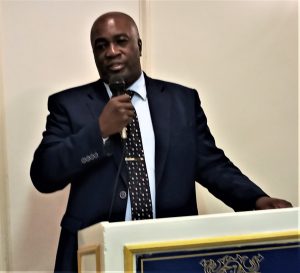
Ministry of Foreign Affairs deputy director, Stewart Nyakotyo
Nyakotyo added that at the Geneva Summit, Southern Africa had the second highest number of pledges after West Africa. He further revealed that through development partners like UNHCR, plans were already at an advanced stage to soon undertake missions to regional countries to issue civic documents to Zimbabwean citizens living outside the country, who are stateless or at risk of being stateless.
“We are working with development partners such as UNHCR to fund this and UNHCR has expressed its commitment to help us. We will also go abroad to the UK (United Kingdom) and Dubai where we believe our people are scattered…We are urging other partners and stakeholders to come on board to help us achieve not only eradicating statelessness, but this will also help us meet our targets of the 2030 Sustainable Development Goals (SDGs),” said the Ministry of Foreign Affairs deputy director.
Zimbabwe signed to seven (7) commitments at the 2019 UNHCR Geneva Summit. The first commitment was to undertake and publish a qualitative and quantitative study to better understand the situation of stateless groups in the country by 2021, of which Nyakotyo said this was already underway through the ZHRC NI survey in progress. In the second commitment, based on the findings of the study (NI survey), Government committed to develop a National Action Plan by 2022 in ending statelessness by 2024. The third commitment was to conduct consultations towards accession to the 1961 Convention.
The fourth commitment was to include questions in the next national census in 2022 to identify stateless people living in the country. The fifth commitment was for Government to establish a dedicated statelessness determination procedure and grant stateless people protection status with an aim to solutions by 2023. The sixth pledge was to complete the ongoing process of aligning the Citizenship Act as well as the Births and Deaths Registration Act with the Constitution of Zimbabwe as safeguards in preventing statelessness by 2023. The seventh and final pledge was on simplifying and improving access to birth registration procedures, including issuance of birth certificates to descendants of former migrant workers and failed asylum seekers to ensure universal birth registration by 2024.
Explaining on the NI survey project ZHRC programmes department officer Priscilla Mbanga said as the national human rights institution responsible for promoting, protecting and enforcing human rights in the country, the NI survey project would be a process of receiving testimonies from the public on the issues affecting them when they are acquiring national identity documents.
“For the ZHRC National Inquiry survey project hearings have been done in nine provinces so far and we are just left with Harare, which we will do from November 18 to 22. The hearings are expected to end this month (November) but until March next year, we will be still collating complaints and more cases through our text messages and email platforms. Issues on access and lack of documentation kept coming up to us and that is why the NI survey project came up. Lack of documentation results in violation of human rights such as the freedom of movement, rights to vote, access to social services and the right to education,” said Mbanga, as she explained about the project to the Parliamentarians.
Mbanga said they are hoping the results of the NI project will enhance cooperation and linkages with stakeholders that work on civic documentation such as RGs Office, Immigration Department and civic society organisations (CSOs) as well as the general public.
“Once we are done recommendations will be given to Parliament. Definitely we need to ratify international instruments, align registrations laws with our Constitution. We need awareness on the importance of documentation because some people just sit without documents. Children without birth certificates cannot participate in sporting activities or have a normal life like others so this needs to be dealt with. We need to train the RGs officers to have a more human rights based approach in dealing with its clients. In a nutshell, we need to change our policies to ensure that everyone has access to documentation,” she said.
Parliamentarians early this year also carried out public hearings in Matabeleland South to ascertain how public documentation was being undertaken in rural communities in the country. This came about after a petition was sent to the Speaker of Parliament on December 10, 2018, by the Gwanda Community Youth Trust, concerning poor issuance of primary documents.
In their findings report presented after the public hearings, Parliamentarians observed that the rights of community members were being affected such as the rights to education, social services, healthcare and other basic rights.
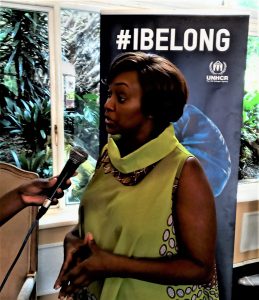
UNHCR protection officer Olivia Mugambi-Spielmann
UNHCR protection officer Olivia Mugambi-Spielmann said women and children were the worst affected on statelessness as most are at high risk of trafficking, early childhood or forced marriages for the girl child, whilst most are easily swayed into smuggling syndicates among many other odd and dodgy jobs, for survival.
The testimony of a 25-year old girl (Name withheld) from Harare who gave her testimony touched many as she has had to endure a life of being considered an alien in the only country she knows as home ever-since she was born. Her ordeal is similar to millions of stateless children worldwide who are born in a foreign country to parents who are descendants of former migrant workers or failed asylum seekers.
“My parents are from different nationalities, Nigerian and South African, but come from all over Africa with four different heritage lines of Nigerian, South African, Mozambican and Malawian, but as for me, I was born here in Zimbabwe. To begin with, the only way I got a birth certificate, years after I was born, was after my mother got remarried to a Zimbabwean. She got remarried after our father abandoned us. I also struggled to get my national ID card when I turned 16. At the RGs office they would tell me to go to the South African embassy because my father is South African, and at the South African embassy they would say I am Zimbabwean because I was born here… So sadly my whole life has been premised on persuasion. Every route I have taken to school or whenever I wanted to do anything to advance myself, it has always involved persuasion, because I would be considered as an alien without any documentation,” she said.
She added, “What breaks my heart most is that I was born here (Zimbabwe), I have never been anywhere else but I am not from here according to the laws of this State and that makes everything much harder for me. I have not been able to finish my university Degree without a national ID and cannot get a passport, so I can’t travel anywhere. I want to work in Zimbabwe, be a part of the workforce but I can’t do that without the relevant paperwork like a national ID… I am also a person with a disability and need access to social welfare but this is not possible because of lack of those civic documents,” she said.
She however said she only managed to get her national ID this year in March through ‘unorthodox’ means after 10 years of attempting to get one through the regular channels. She implored Government to ensure birth registration for descendants of migrants who are born in Zimbabwe, to avoid her ordeal of growing up as a social misfit.
“At the Registrar General’s Department they ask you a few questions. They first ask for your birth certificate then they ask the nationality your mother comes from and where your father comes from. In my case fortunately I had my birth certificate, but because my father is not from here I would always be turned away despite trying to explain our complex situation. We were treated very roughly on every attempt to get my ID. After several attempts we realized that going through the conventional route would never be successful, so we opted for ‘persuasion’. I am now 25 years old and I only got my national ID this year in March, but not through the regular means,” she said, as she narrated her ordeal before the Parliamentarians.
Mugambi-Spielmann said such cases of statelessness at birth if not dealt with become an inherent debt passed on to children from one generation to another, which explains why in the UNHCR Global Action Plan to end statelessness includes ensuring that no child is born stateless and ensuring birth registration for all to prevent new cases of statelessness. “This is why we are pushing to resolve existing situations of statelessness, prevent new cases of statelessness from emerging and creating better identity and protect stateless persons,” said the UNHCR protection officer.
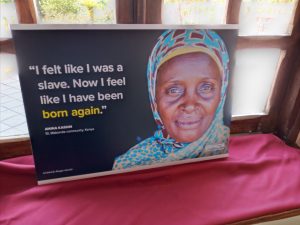
One of the ‘#IBelong’ campaign posters illustrating statelessness.
In another testimony, Maria (Real name withheld) said her parents are from Mozambique but she was born at Nyanga Hospital in Manicaland and has been living in Ruwangwe village ever-since. “My parents came to Zimbabwe as boyfriend and girlfriend fleeing the civil war in Mozambique. They however got married here in Zimbabwe and had nine children including me. In our family we all failed to get birth certificates up-to-date. I am now a mother of two but still do not have any documentation to my name. The Registrar General’s department always requests for my parents travel permit into Zimbabwe each time that our parents tried to apply for birth certificates for us, of which, the truth was that my parents had fled Mozambique and entered Zimbabwe illegally as ‘border jumpers’ but it was justified back then, as they wanted to live a decent life away from the civic war in Mozambique,” she said.
Maria said when the civil war in Mozambique was over her parents decided to go back to Mozambique after facing so much hardship in Zimbabwe of being constantly reminded that they were outcasts, she however remained behind because she had been married. “I now have two children, the second one has to start Grade One next year and they are still insisting that I should have a birth certificate so that my child will also be able to get a birth certificate. So both my children have no birth certificates. Every time I tried to get one they ask for my parents who are not around,” she said. She added that she last visited her parents in Mozambique in 2015 and tried to get a national identification card there but they declined and said she was Zimbabwean by birth.
Maria who only reached up to Grade Seven in her education because of failures to get a birth certificate said advancing her education was a problem. “Present-day, I am really good at farming but without any civic documentation I am failing to get employed anywhere or to be self-employed and access any funding to start my own projects. I have to go through other people to access anything which is not fair. I was born in Zimbabwe and am Zimbabwean by birth regardless of my parents’ nationality,” she said with a pitiful face that really expressed her years of anguish.
Resolutions made by the Parliamentarians
As the world is increasingly becoming a Global Village. Globalizations in the world have taken roots over the years leading to connection of different countries and different nationalities across. Hwange Central legislator Daniel Molokela concurred on the need to have leniency on statelessness and advocated for a moratorium to be urgently done to prevent new cases from emerging.
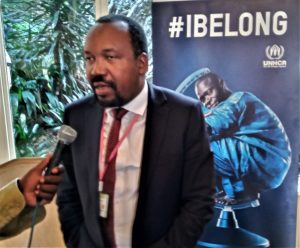
Hon Molokela
He said the fact that during the colonial era Zimbabwe used to be under a Federation of Rhodesia and Nyasaland a lot of damage was done which has precipitated most of the continuing cases of stateless persons present-day. “If you come to Hwange, a lot of people speak Nambya, so there are a lot of Malawians, people of Zambian, Mozambican and Tanzanian origin, so Hwange is a melting pot of international people and a lot of people have been affected by the citizenship laws being left at risk of being stateless. Most are third and fourth generation Zimbabweans, but when they want to get their passports or national IDs they are reminded that they are aliens and should renounce their citizenship and so on,” said the Hwange Central legislator.
Adding, “We need to find a way to regularize this. Most of them were born in Zimbabwe and their parents were born in Zimbabwe but maybe their grandparents or great-great parents were the ones who were not born in Zimbabwe, so most are second and third generation born in Zimbabwe and do not deserve to be rendered stateless.”
Honourable Molokela however said most of the descendants of former migrant workers and failed asylum seekers do not have a situation where they completely have no documentation citing that they may have national documentation that clearly states they are not citizens or may have passports, but most do not have birth certificates and which complicates matters especially when their passports expire.
He added that now it was very important for Zimbabwe to come to terms with the reality of statelessness and the problems it was creating, particularly in his constituency, a mining town where the country’s biggest coal mining colliery is located. “There are a lot of people affected by this. I am one of the biggest advocates for a presidential amnesty, where the normal terms of conditions, the fees and the fines aligned with taking of birth certificates should be minimized for a period, so that there is a public awareness campaign to make sure that we start again and there is a ground zero strategy. There has also been a lot of inter marriages ever since the colonial era migrations happened, so a lot of people are half Zimbabwean, half Malawian or half Mozambican. Most were born here and will die here so we need accept that they are Zimbabweans and an amnesty is one way forward where the conditions for getting birth certificates are relaxed for a specific period to regularize their status,” he said.
Chimanimani East legislator Joshua Sacco in his constituency, which is a border line community, said a lot of people came to Zimbabwe during the Renamo (Mozambican opposition party) military excursions that forced many to flee the civil war, so a lot of these people have remained undocumented. “Some of them their parents came from Mozambique and some were born here and these are issues that we are discussing that no person should be stateless or without an identity. It is a very important process to understand for Parliament to lobby for change of legislation where necessary and to also work with development partners to make sure that every person has a birth certificate and an identity,” he said.
Hon Sacco suggested that on the problems of access to or lack of documentation, the whole attitude of the officials at the Register General’s department should change through retraining and capacitation to take on certain issues with a human heart on special cases where they need to understand that the people have challenges to acquire necessary documents.
He also supported the need for a moratorium to be put in place for a certain period maybe a year, to ensure that people in a certain age groups automatically have birth certificates issued to them, particularly those in border line communities. “We need to put in place mechanisms where renunciation of foreign citizenships is made possible. Renunciation of foreign citizenship currently costs $5000 (RTGS) but a lot of people do not have that amount of money so it becomes prohibitive. So reducing fees will go a long way to make sure everyone is registered,” said the outspoken legislator.
He also took the opportunity to appreciate the support that his constituency received from the UNHCR after Cyclone Idai early this year, particularly the support towards the RG’s Office on issuance of documents to people in affected areas like Chimanimani and Chipinge, to help replace their civic documents so that they can reclaim their identity and quickly move on with their lives. Hon Sacco however said in Chimanimani there were people who were left out on the first phase and there was need for another second phase of the programme.
Explaining further on that Chimanimani project Mugambi-Spielmann said following the effects of cyclone Idai they saw an urgent need of replacing documents of individuals who had lost their documentation during the cyclone. “This was very crucial, to ensure that these individuals do not become stateless or at risk of being stateless. Having their documents reclaims their lives and rights as citizens. So UNHCR and the RGs Office conducted a survey on the magnitude of this problem and from there we were able to support the RGs office operationally and in terms of financing the replacement of these documents. The project started on September 1 with an information campaign informing individuals to come forward to replace their documents. This project will go on until end of December. Our target is to ensure that all individuals affected by the cyclone will have their documents replaced and not fall in the category of statelessness,” she explained.
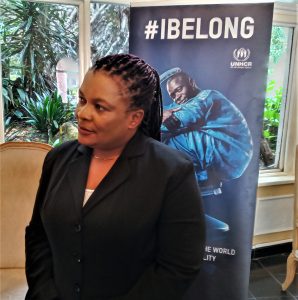
Nyanga North legislator Chido Sanyatwe
Nyanga North legislator Chido Sanyatwe, who also comes from another constituency with border line communities appealed to Government to seriously look into the issues of statelessness and relax the laws to allow children to access civic documents. “We are near Mozambique and there is an invincible border. Over the years we have seen a lot of inter marriages. We have so many challenges in the country and in my constituency a border line constituency, people are failing to access relevant documents especially women and children. People should be made aware which is why as parliamentarians, we should fast move a motion against statelessness and push for programmes to eradicate it whilst it is still manageable,” she said.
Chegutu West legislator Dexter Nduna said statelessness was real and Parliamentarians have the responsibility to push for its dowsing. “It is therefore my thinking that parliamentarians need to adhere to the ethos and values of alignment of the acts to the Constitution because Section 38 (2) speaks to and about anybody who has been living in the country continuously for more than 10 years to be accorded citizenship and Section 2 of the constitution speaks about the constitution being the supreme law of the land,” said Hon Nduna.
He added that it was now inescapable for the executive to have a moratorium to ensure that every school going child has a birth certificate irrespective of their parents having no birth certificate or registration certificate to ensure that Zimbabwe wards off new cases of statelessness.
“We are proposing as Parliamentarians that the moratorium will run from 2020 January to 2021 January, a period of 12 months. There should be a joint committee of Justice, Legal and Parliamentary Affairs; the Home Affairs committee; Defense committee; the Labour and Social Welfare committee and the Human Rights committee, which is a thematic committee of the Senate, so that we expeditiously deal with this scourge, aware that the UNHCR is quite mandated to deal with statelessness by 2024, and this is quite plausible,” said Hon Nduna.
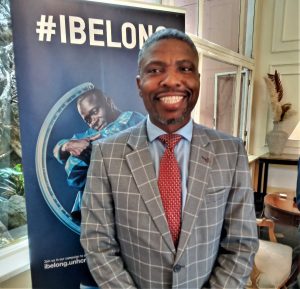
Hon Dexter Nduna
Hon Nduna added that even Zimbabwe’s target of achieving an upper middle income economy by 2030 which was enunciated by President Emmerson Mnangagwa, was at risk of being deterred if the country does not adhere to the ethos of documenting all its citizens. “We could also be losing a lot of technocrats to other nations whose laws are quite amenable to statelessness…We also might have illicit outflows and revenue leakages because of non-documentation, remember the African Development Bank (AfDB) report of 2017 spoke about Africa having lost about US$80 billion and some of this could be because of statelessness, which operates at invisible levels,” voiced the Chegutu West legislator.
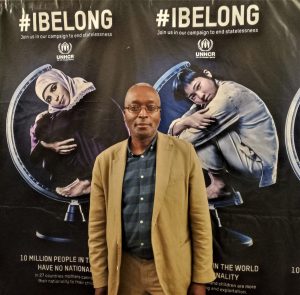
UNHCR country representative Shana Kaninda.
UNHCR Zimbabwe country representative Shana Kaninda said statelessness is a man-made problem and only requires good will and political will to eradicate it as he urged Parliamentarians to be at the forefront. He said if the world managed to eradicate Polio, which was once a disease feared worldwide, striking suddenly and paralysing mainly children for life, then eradicating statelessness is possible.
Through the World Health Organisation (WHO) Polio now survives only among the world’s poorest and most marginalized communities, where it stalks the most vulnerable children. The initiative’s goal is to reach every last child with polio vaccine and ensure a polio-free world for future generations was successful. Kaninda was however happy with the resolutions made by the Parliamentarians at the workshop.
The Parliamentarians committed to advocate for Zimbabwe to accede to the 1961 Convention, to align nationality laws in Zimbabwe with the Constitution of Zimbabwe and also with international standards, to ensure everyone has access to civic documentation and ensure birth registration does not leave any born child behind and lastly to make sure there is further decentralization of the RGs office to effectively guarantee no one is left out on documentation.
“These were the four resolutions that we discussed and we are very pleased with the outcome of the deliberations. We came up with an action plan where each objective has a timeline. Some are achievable by December this year and some in the first quarter next year, but when the document is finalised it will be accessible to the public and every resolution is time bound. This is a better way to ensure that every stakeholder involved in the process knows that by a certain period of time they have to complete what they have to do,” said Kaninda.
UNHCR also said the 2030 SDGs were also at risk if statelessness is not dealt with, citing SDG 4 that commits States to ensure all boys and girls complete free, equitable and quality primary and secondary education, as well as SDG 1 and 2 that talk about ending poverty in all forms everywhere and achieving food security and improved nutrition to promote sustainable agriculture.
“We can also talk about SDG 3 which talks about ensuring healthy lives and wellbeing for all ages, SDG 8 which promotes sustained, inclusive and sustainable economic growth full of productive employment and decent work for all and SDG 5 on ending all forms of discrimination against women and girls everywhere…In view of the fact that 10 million stateless people live on the lowest rungs of society, including in terms of economic prosperity, political participation and social inclusion, the overarching aim of the 2030 Agenda ‘to reach the furthest behind first’ and ‘leave no one behind’ surely appeal to this special group and without dealing with statelessness it will be difficult to deal with most SDGs,” said Mwongeli Makau from UNHCR, presenting on the need for eradication of statelessness in Africa.


